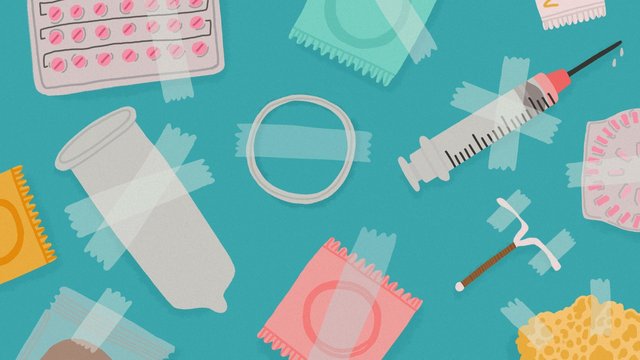The famous Pill was approved by the FDA in early 1960, giving millions of women better control over their own fertility, however, this liberating discovery did not come without problems. Birth control pills are the number one prescribed medicine worldwide but after sixty years of research and development, we still have some side-effects being reported, mainly related to emotions and how we perceive emotions.

Originally championed by feminists and then later rejected due to potential health risks, whilst demanding that men bear some health risk too, the Pill has been the centre of many social, religious and medical discussions over the decades. Its use and usefulness are fraught with ingrained and inculcated views and it is no wonder that there seems to be a psychological component to the effect of the Pill on women’s emotions.
Benefits:
• Effective birth control with <1% failure rate, some allowing no periods.
• Lower rates of Pelvic Inflammatory Disease and cancer in the uterus and ovaries and can lessen the severity of endometriosis and fibroids.
• Can treat polycystic ovary syndrome, anaemia, bulimia, and acne.
• Can help prevent sudden mood changes during the cycle due to hormone changes.
Common Side-effects:
• Nausea or upset stomach
• Breast swelling or tenderness
• Mood changes (which are exacerbated by other side-effects)
• Spotting between periods (breakthrough bleeding)
• Possible weight gain or fluid retention
• Serious side-effects include blurred vision, severe headache or stomach ache, swelling/pain in legs, chest pain, heart attack, blood clots or stroke, but is rare.
• Gastrointestinal upset in the last week may be caused by the iron supplement.
Mood-related changes
Do oral contraceptives change your moods? The simple answer is yes, however, it can swing both ways, as hormonal balance is dependent on the individual’s physiology, endocrine levels, and their usual hormone regulation processes.
Some users find mood greatly stabilized, others find their moods all over the place, with episodes of inexplicable rage, anxiety and irrational behaviour, interspersed with tearful and ‘blue’ episodes.
Research suggest that there is mounting evidence of the relevance of sex hormones on emotional and cognitive processing, but that further research is needed.
Some even claim it affects your mating choice - as the Pill tricks the body into believing it is pregnant, the female is attracted to a different type of male, based on scent. Jones (University of Glasgow) refuted these claims in their study.
It is postulated that it affects your attractiveness – the Pill blocks the production of powerful pheromones, which are normally at their height at her most fertile time, and thus make females moody when on the Pill. However, Cohen et al reviewed many studies and states that reported effects of the pill on various aspects of sexuality are widely divergent and that the symbolic significance of taking a contraceptive pill, may lead to a predisposition of sexual dysfunction problems reported.
Are the mood changes related to hormone supplements or the psychological effects of taking the Pill? No definitive research is done yet on this angle – some food for thought.
Do oral contraceptives cause or worsen depression?
Several studies have pointed to progesterone being a culprit in the higher rates of depression in women taking oral contraceptives . A large Danish study revealed a 1.23 higher rate of depression for women and 1.8 for teenagers on Progesterone or mixed oral contraceptives. Harvard states the risk is small but real.
Depression is cited as the most common reason for discontinuing the Pill. However, it is not clear if it is caused by the pill or worsened by the pill. Most studies have not taken cognizance of the role of other hormones, or pre-existing conditions and genetic or environmental risks.
Can it also affect how you perceive emotion?
Oestrogen and progesterone are normally present in regions of the brain that help to regulate emotions, in a steady cycle based on the periodic cycle, but oral contraceptives provide a steady stream of hormones. Lischke investigated if it changed emotional processing skills and found a ten percent increase in mislabelling emotions when on the Pill.
Apart from contraception, the Pill has spurred an international sexual revolution (one of the ‘seven wonders of the modern world’ ), and has expanded a woman’s role in the workplace, but at what cost?
Despite the widespread use of oral contraceptives (OCs), remarkably little is known today about the effects of OCs on emotion, cognition, and behaviour. Of course, contraceptives for men could help women avoid the side-effects of hormonal pills.